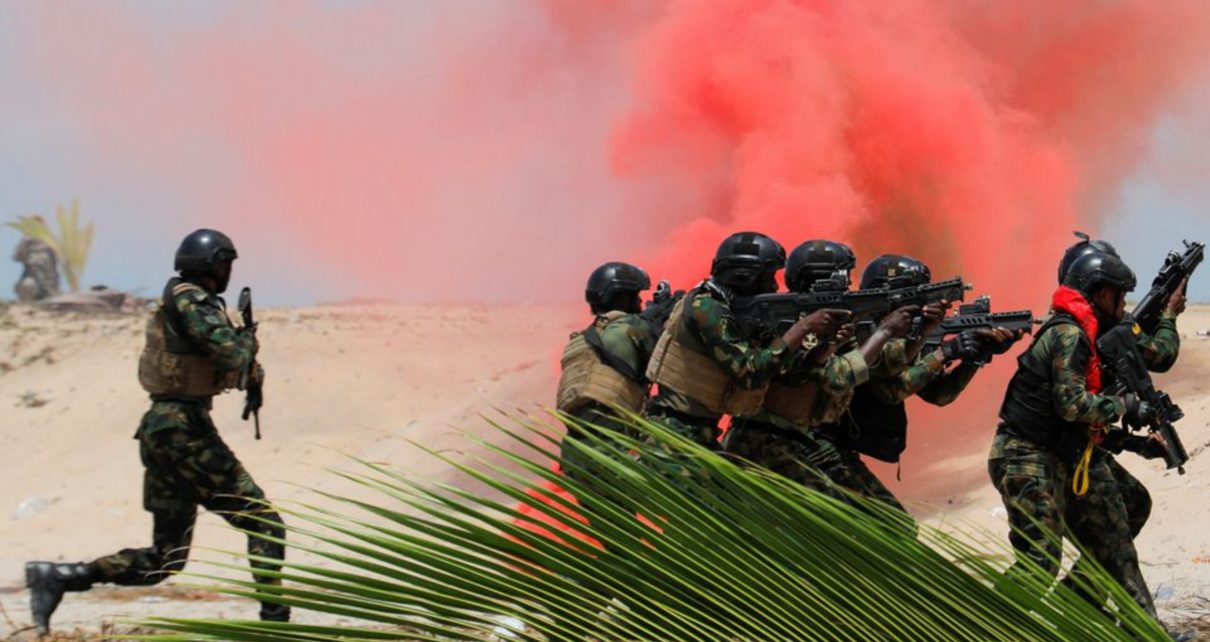Using their small boats in silence, the West African troops boarded a rusty ferry and climbed its sides using grappling hooks to disarm mock kidnappers on board.
The U.S. military conducted the drill on Saturday in the Volta River in Ghana as part of the inaugural maritime exercises organised as part of the ongoing Flintlock programme to improve the capabilities of West African forces.
At the end of the maritime drills in the first half of March, the soldiers stormed a beach resort to end a simulated hostage situation while holding their weapons aloft and braving neck-high waves. Senior military officials and foreign representatives observed the event from a distance.
Commander of the United States Special Operations Command in Africa (SOCAF) Admiral Milton Sands has stated that the programme has been expanded to assist coastal nations in the region in dealing with maritime threats such as piracy and illegal fishing.
Unauthorised fishing “is a significant one that we’re really trying to work with our partners to get our arms around slowing down,” he told Reuters on Tuesday.
He noted that the illegal fishing not only deprived the area of a vital food source but also provided financial support for other forms of transgression, such as drug and human trafficking.
Approximately 350 servicemen from Ivory Coast, Ghana, and Nigeria participated in the exercises on the Gulf of Guinea. U.N. Security Council reports indicate that the number of incidents of piracy in the region has decreased since 2021.
According to a report from the non-governmental organisation Financial Transparency Coalition in 2022, illegal, unreported, and unregulated (IUU) fishing has spread along the coasts of West Africa, draining an estimated $9.4 billion annually through illicit financial flows.
It was reported that eight of the top 10 companies involved in IUU fishing in the region were Chinese, and that one-third of all vessels involved were flying the Chinese flag.
Because of a lack of resources, Commodore Godwin Livinus Bessing, commander of Ghana’s Naval Training Command, has made combating IUU fishing a top priority.
“They continue to flout our regulations because of our enforcement capabilities,” he said. “That is one of the biggest problems. If we had enough ships out there and they knew we were monitoring the place, we would be able to curb the situation.”


